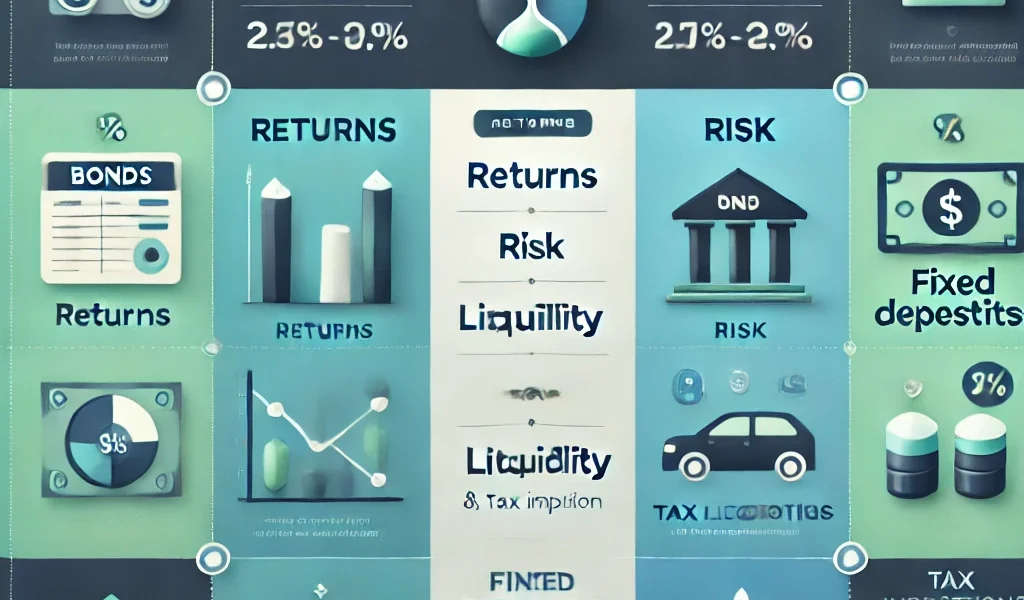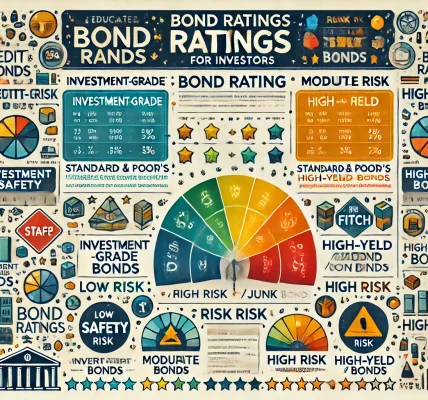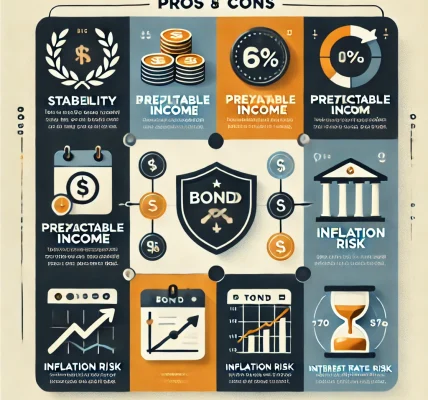Introduction
When it comes to safe and stable investments, two popular options often come to mind: bonds and fixed deposits (FDs). Both offer a predictable return on investment, but each has unique characteristics that affect their profitability, risk levels, and overall appeal. For investors seeking to maximize returns while minimizing risk, understanding the differences between bonds and fixed deposits is crucial.
In this comprehensive guide, we’ll compare bonds and fixed deposits, examining their benefits, risks, and potential returns. By the end, you’ll have the insights you need to make an informed investment decision.
What Are Bonds?
A bond is a debt instrument where an investor lends money to a government, corporation, or other entity in exchange for periodic interest payments and the repayment of the principal amount at maturity. Bonds are a common method for organizations to raise capital.
Types of Bonds:
- Government Bonds: Issued by national or local governments; low risk but lower returns.
- Corporate Bonds: Issued by companies; offer higher returns but come with increased risk.
- Municipal Bonds: Issued by local governments for public projects; often tax-exempt.
- Zero-Coupon Bonds: Sold at a discount and pay no periodic interest, but provide a lump-sum return at maturity.
Key Features of Bonds:
- Fixed or variable interest rates (also called coupon rates)
- Defined maturity period
- Tradable in secondary markets
What Are Fixed Deposits (FDs)?
A fixed deposit (FD) is a financial instrument offered by banks and non-banking financial companies (NBFCs) where investors deposit a sum of money for a fixed tenure at a predetermined interest rate. At the end of the tenure, the investor receives the principal amount along with the accrued interest.
Key Features of Fixed Deposits:
- Fixed interest rate
- Guaranteed returns
- Fixed tenure ranging from a few months to several years
- Low risk due to regulatory protection
Comparing Bonds vs. Fixed Deposits
| Feature | Bonds | Fixed Deposits |
|---|---|---|
| Risk Level | Varies (Government bonds = low risk; corporate bonds = higher risk) | Very low risk (insured up to a limit by regulatory authorities) |
| Returns | Potentially higher returns depending on the issuer and type of bond | Lower but guaranteed returns |
| Liquidity | Tradable in secondary markets (depends on market conditions) | Low liquidity (penalty for premature withdrawal) |
| Tax Treatment | Interest income taxable; some bonds (like municipal bonds) may be tax-free | Interest income taxable (with potential tax-saving FDs) |
| Tenure | Flexible (short-term to 30+ years) | Fixed (typically from 1 to 10 years) |
| Accessibility | Requires a brokerage account; minimum investment varies | Available to the general public through banks with a low minimum investment |
Returns: Which Investment Offers More?
1. Interest Rates Comparison:
- Bonds: Corporate bonds typically offer higher interest rates (5%-12% annually) compared to government bonds (2%-7% annually).
- Fixed Deposits: Generally offer 5%-8% annually, with senior citizen FDs providing slightly higher returns.
2. Inflation Protection:
- Bonds, particularly inflation-linked bonds, offer better protection against rising prices.
- Fixed deposits have fixed returns, which may not keep pace with inflation over time.
3. Capital Growth Potential:
- Bond prices can increase if interest rates fall, providing additional profit if sold on the secondary market.
- Fixed deposits have no growth potential beyond the agreed-upon interest rate.
Risks Involved
Bonds:
- Credit Risk: The issuer may default on interest or principal payments.
- Market Risk: Bond prices fluctuate with changes in interest rates.
- Liquidity Risk: Selling bonds before maturity may not always be easy or profitable.
Fixed Deposits:
- Inflation Risk: Fixed returns may lose value in real terms if inflation rises.
- Premature Withdrawal Penalty: Early withdrawal may lead to interest penalties.
Tax Implications
- Bonds:
- Interest earned is taxed as per the investor’s income tax slab.
- Capital gains tax applies if bonds are sold before maturity.
- Certain government bonds and municipal bonds may offer tax exemptions.
- Fixed Deposits:
- Interest income is fully taxable under the “Income from Other Sources” category.
- Tax-saving FDs offer deductions under Section 80C (up to ₹1.5 lakh per year).
Who Should Invest in What?
Choose Bonds If:
- You seek higher returns and can tolerate moderate risk.
- You want to diversify your investment portfolio.
- You prefer tradable assets with flexible holding periods.
Choose Fixed Deposits If:
- You prioritize safety and guaranteed returns.
- You want a straightforward investment with minimal market involvement.
- You have short-to-medium-term savings goals.
Conclusion
Both bonds and fixed deposits offer unique advantages, but your choice depends on your financial goals, risk tolerance, and return expectations. Bonds typically offer higher returns with more risk and liquidity, while fixed deposits provide guaranteed returns and greater safety.
Before investing, thoroughly assess your financial situation, consult with a financial advisor, and consider a balanced approach by diversifying across both instruments to achieve a stable and profitable investment portfolio.
Disclaimer: This article is for informational purposes only and should not be considered financial advice. Always consult a professional advisor before making investment decisions.



